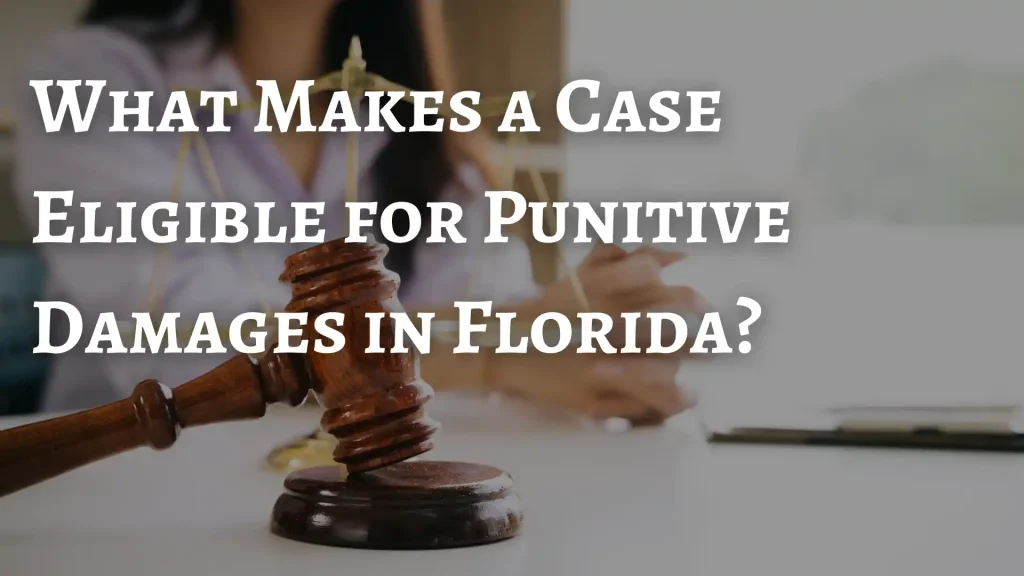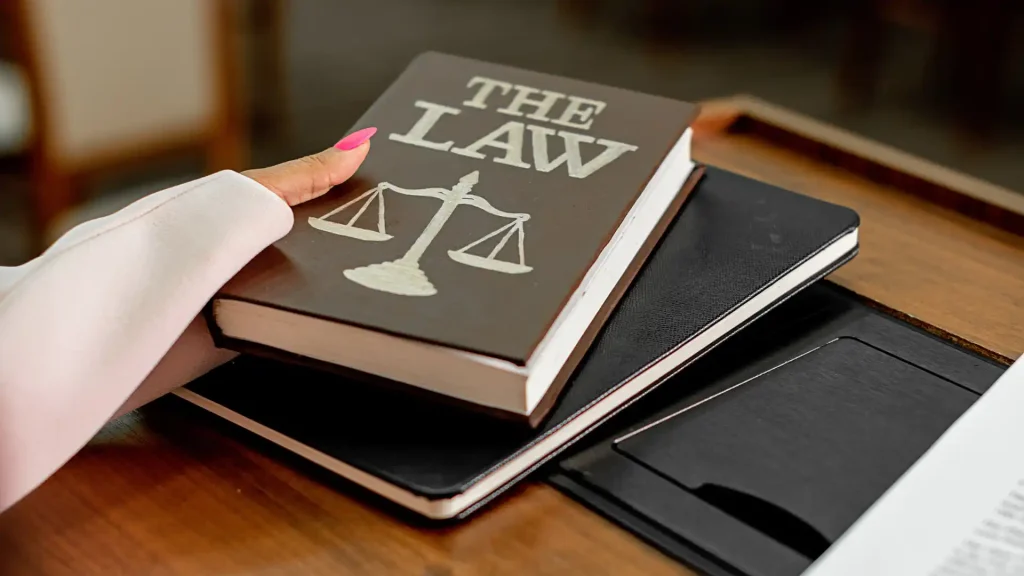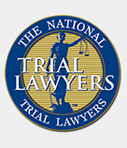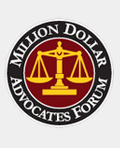 Suppose you suffered severe injuries because of someone’s reckless or intentional actions. You might be wondering if you can pursue punitive damages. In Florida, punitive damages are different from other types of compensation. Instead of covering your losses, they are meant to punish the wrongdoer and send a powerful message. Punitive damages are not awarded in every case. However, when they are, they can significantly increase the overall value of a personal injury claim.
Suppose you suffered severe injuries because of someone’s reckless or intentional actions. You might be wondering if you can pursue punitive damages. In Florida, punitive damages are different from other types of compensation. Instead of covering your losses, they are meant to punish the wrongdoer and send a powerful message. Punitive damages are not awarded in every case. However, when they are, they can significantly increase the overall value of a personal injury claim.
What Are Punitive Damages?
Punitive damages are a superior financial award used to punish a defendant for especially reckless, malicious, or intentional behavior. They are not designed to compensate the victim for their losses. Instead, they aim to convey that specific behavior is entirely unacceptable. Punitive damages are meant to hold the offender accountable in a way that regular damages cannot. Punitive damages in personal injury lawsuits punish the wrongdoer. Deter others from acting the same way in the future, but they can also impact how long it takes to settle a case.
To award punitive damages, the court must find clear and convincing evidence that the defendant’s actions went far beyond ordinary negligence. This means the behavior must have shown a conscious disregard for the safety, rights, or well-being of others. Punitive damages are usually reserved for extreme cases, such as when a company knowingly sells a defective product that causes harm or when someone engages in fraud, cover-ups, or intentional violence.
Because punitive damages are so severe, courts apply a higher standard of proof and often limit the amount that can be awarded based on specific state laws. The goal is for the punishment to fit the misconduct without being excessive. And details in the accident report can help support a fair outcome.
Compensatory vs. Punitive Damages
Understanding compensatory and punitive damages can help victims know what to expect when filing a personal injury claim.
Compensatory damages are intended to cover the financial and emotional losses you have suffered because of someone else’s actions.
These can include:
- Medical treatment costs
- Lost income from missed work
- Compensation for pain and suffering
- Property damage
Punitive damages, on the other hand, are not about reimbursement. They are designed to discipline the culprit for especially reckless or malicious behavior and to hinder others from acting similarly.
If you are unsure which damages might apply to your situation, an experienced attorney can review your case and explain your options.
Pain and Suffering vs. Punitive Damages
Pain and suffering damages cover an injury’s emotional and mental impact on your life. This can include things such as anxiety, depression, trouble sleeping, loss of enjoyment in activities you once loved, or ongoing physical pain that makes daily tasks harder.
Punitive damages occur when someone’s actions are shockingly irresponsible, like a trucking company forcing drivers to work dangerously long hours, a doctor intentionally falsifying medical records, or a landlord ignoring known fire hazards to save money. They exist to hold people accountable when a simple fine or lawsuit is not enough to reflect the seriousness of the transgression.
When building your case, your attorney will look at pain and suffering separately from punitive damages. Each plays a vital role in calculating the full value of your claim.
When Are Punitive Damages Awarded in Personal Injury Cases?
While Florida and Panama City law offices allow punitive damages in personal injury cases, they are never guaranteed. Even when gross negligence or intentional misconduct is involved, courts require clear and convincing evidence before considering a punitive award. Judges and juries carefully weigh the facts to decide if the defendant’s behavior was extreme enough to justify additional punishment.
In many cases, the decision also involves considering factors such as the severity of the misconduct, whether it was part of a pattern, and how much harm could have been prevented. Meeting the threshold for punitive damages is a high bar – it is meant to reserve this form of punishment for the most serious and deliberate wrongdoing.
How to Claim Punitive Damages

In Florida, plaintiffs must first ask the court for permission to pursue punitive damages. This is not just a formality – it requires showing that the case meets the state’s strict legal standards for awarding this extra form of punishment. If you file for punitive damages without a strong legal basis, you risk delaying your case, weakening your overall claim, or even facing court-imposed sanctions. The rules around punitive damages are strict because the stakes are so high.
That’s why it’s so important to have an experienced legal team on your side. A skilled attorney can gather the proper evidence, meet all the procedural requirements, and present a compelling argument, giving you the best possible chance of securing a punitive damages award.
Court-Awarded Punitive Damages and Civil Lawsuit Caps
In Florida, there are limits on how much a plaintiff can recover in punitive damages. In most cases, punitive damages cannot be more than three times the amount of compensatory damages or $500,000, whichever is higher.
However, there are exceptions. If a defendant acted with the intent to cause harm, the court may eradicate these limits, allowing for a much larger punitive damages award.
Understanding how these caps work is essential when estimating the value of a personal injury case. The defendant’s behavior plays a significant role in whether the limits apply. An attorney can review your situation and explain how Florida’s punitive damages rules could impact your personal injury settlement or trial.
Speak with a Panama City Personal Injury Lawyer Today
Punitive damages can significantly raise the value and intensity of a personal injury case. If you believe your injury was caused by gross negligence or intentional misconduct, The Bruner Law Firm is ready to help. Our Panama City team knows what it takes to build strong cases that support court-awarded punitive damages.
We fight for victims who deserve more than compensation—they deserve real accountability. Call (850) 243-2222 or use our contact form to schedule a free consultation. Our team is here to help you understand your rights and take the first step toward securing the necessary benefits.







